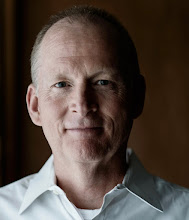 My last post ended with the question, "How do you un-learn?" Here are are a few ways I’ve been trying to practice un-learning:
My last post ended with the question, "How do you un-learn?" Here are are a few ways I’ve been trying to practice un-learning:1) Ask yourself really good questions.
We live in a world that processes lots of information. Rarely do we reflect upon really good questions. One of the values of thinking through good questions is that it challenges the patterns of thinking and behaving that often go unchallenged.
Look for, write down, and think through good questions.
2) Learn from others who seem to get it.
Look around you for others who seem to be making headway in areas where you'd like to grow in. Dump the pride that would cause you to be threatened by the admission you have a lot to learn (and un-learn) and seek counsel and new perspectives from those both within and without your organization.
The people I'm seeking out in this way are challenging my thinking on a number of fronts, helping me un-learn and then learn again.
3) Talk less. Listen more. I'm thinking that's a pretty straightforward concept.
4) Identify and examine your assumptions.
Recently the SoHills' Groups Leadership Team had a great discussion about the assumptions we have made about our Groups. We came up with a long list and walked through each one of them. One of the items we discussed was that the Groups' path is a "one-size-fits-all" approach for those who are new to our church. Much of how we were approaching Groups was predicated on this assumption... which our team agreed, after wrestling with it for quite some time, was not a valid assumption. My point isn’t what's the best approach to take to small groups. My point is that when you identify your assumptions, it usually creates great dialogue. It forces you to see differently.
Certainly there are many more strategies for un-learning... but if you're sensing un-learning is a discipline you need to embrace, perhaps the above possibilities will get you started on the process of unlearning.

